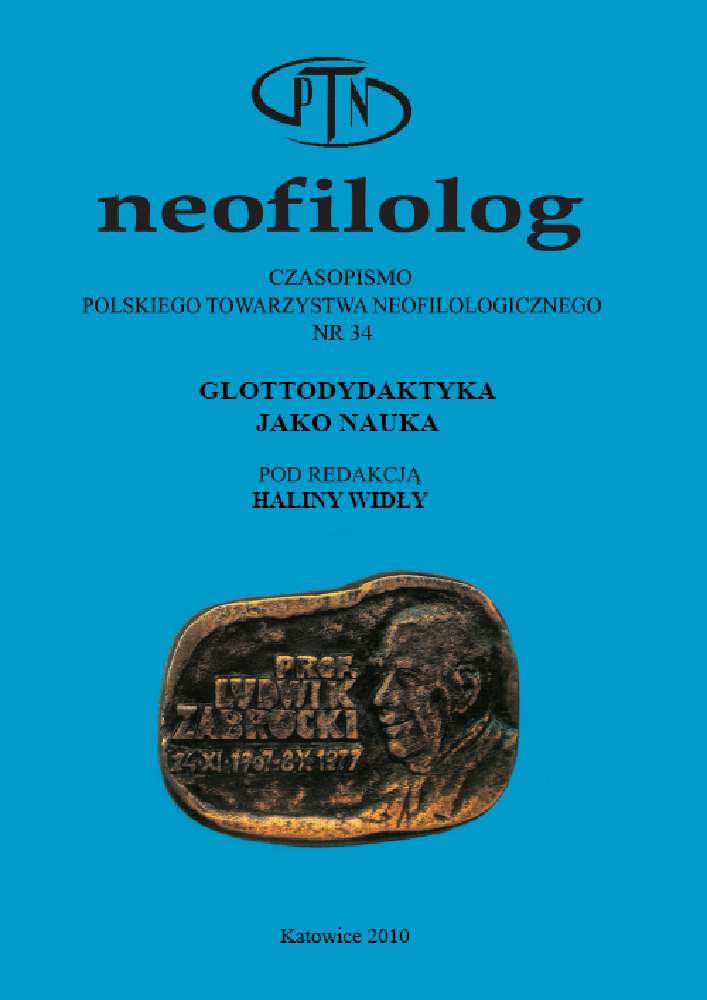Abstrakt
The purpose of this article is to present similarities and differences between scientific and individual (subjective) theories on e-learning. Individual theories of students and teachers contain beliefs about pedagogical approaches, effectiveness and solutions of different didactic issues. The similarities can result both from knowledge of scientific literature and from professional experience.
Bibliografia
Dudeney,G. i Hockly, N. 2007. How to Teach English with Technolog y. Harlow: Pearson.
Finkbeiner, C. 1998. „Sind gute Leser/-innen auch gute Strategen? Was Fremdsprachenlehrer und -lehrerinnen darüber denken“. Fremdsprachen Lehren und Lernen (FluL) 27: 180 – 203.
Means, B. i in. 2009. Evaluation of Evidence-Based Practices in Online Learning: A Meta-Analysis and Review of Online Learning Studies. U.S. Department of
Education: Washington D.C.
Polak, K. 1999. Indywidualne teorie naucz ycieli: geneza, badanie, kształtowanie. Kraków: Wydawnictwo Uniwersytetu Jagiellońskiego
Rösler, D. 2007. E-Learning Fremdsprachen – eine kritische Einführung. Tübingen: Stauffenburg
Tenberg, R. 2003. „Interaktionsformen und neue Medien aus der Sicht des Fernlernens”. Deutsch als Fremdsprache 4: 210 – 219
Licencja
Prawa autorskie (c) 1970 Przemysław Wolski

Utwór dostępny jest na licencji Creative Commons Uznanie autorstwa – Bez utworów zależnych 4.0 Międzynarodowe.
Przedstawiany utwór (artykuł) upubliczniany jest na podstawie umowy z autorem i na licencji Creative Commons Attribution-NoDerivatives 4.0 International (CC BY-ND 4.0).
Użytkownicy mają obowiązek podania wraz z rozpowszechnionym utworem, informacji o autorstwie, tytule, źródle (odnośniki do oryginalnego utworu, DOI) oraz samej licencji;
- bez tworzenia utworów zależnych,
- utwór musi być zachowany w oryginalnej postaci.
Uniwersytet im. Adama Mickiewicza w Poznaniu zachowuje prawo do czasopisma jako całości (układ, forma graficzna, tytuł, projekt okładki, logo itp.).
